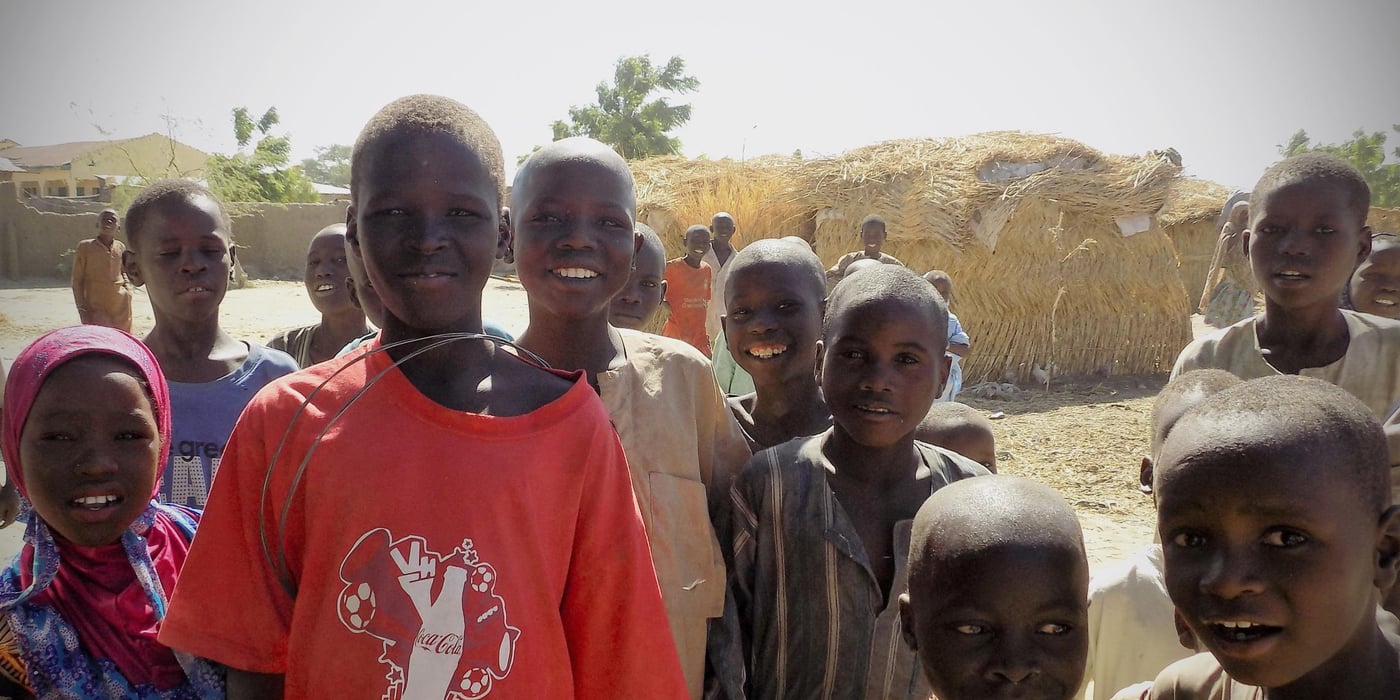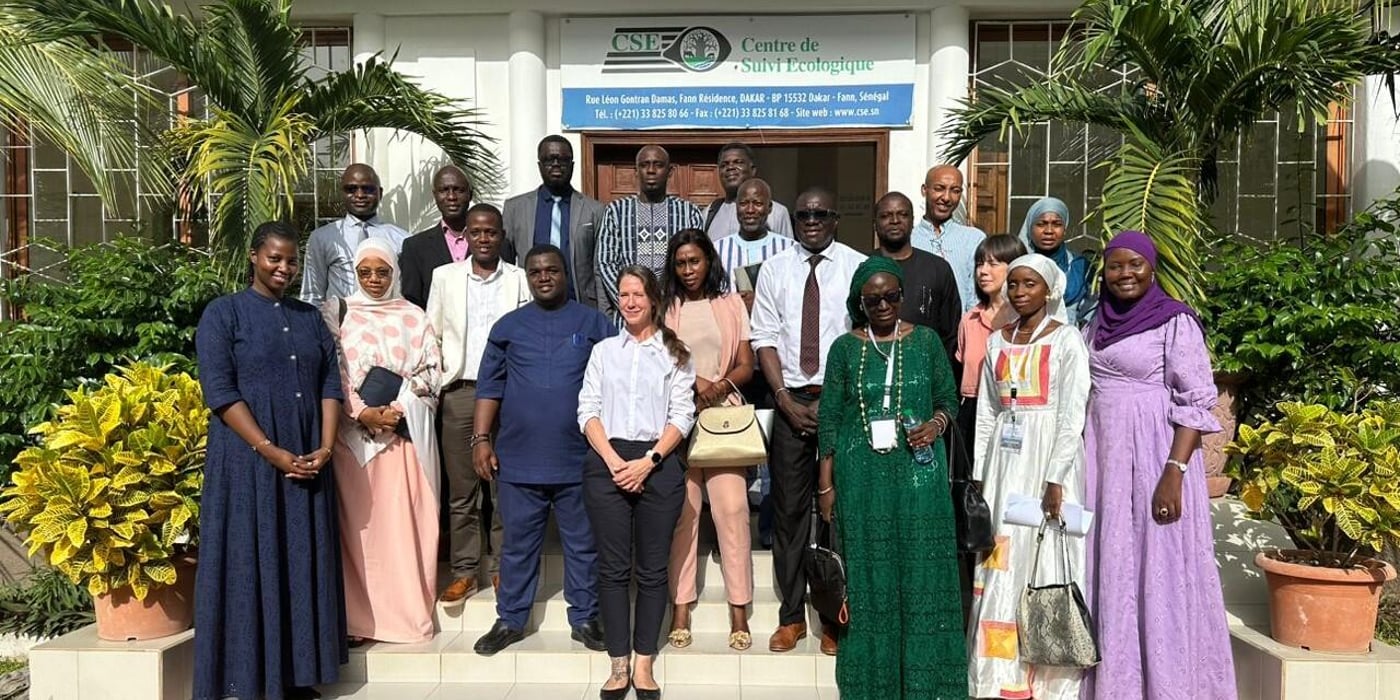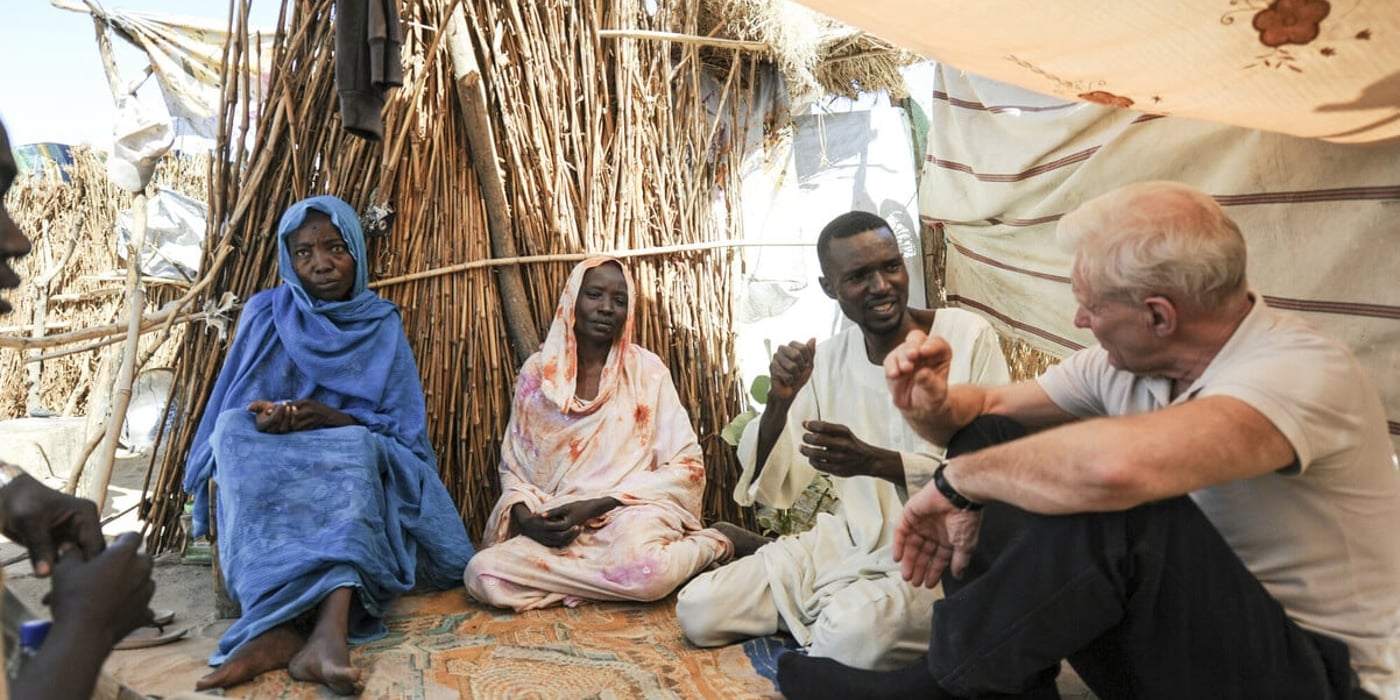
Even now, internationals working in the humanitarian aid response here go by helicopter. The road is too risky for anyone who couldn’t find their way through the bush, if they had to run.
When I arrived it was a quiet morning in Monguno. Deceptively quiet; when we checked in with the leader of the community where NRC works, he warned us that the day before three people got their throats cut, just outside of town. He counsels us not to stay too long: "Be careful today."
Risking life for food
Despite such incidents, Monguno is actually the eye of the storm in this part of Borno. People displaced by the fighting and violence all around the town have been flooding into Monguno for the past few years, and more are arriving every day. They are now in limbo, waiting for peace, waiting to go home. And before that, waiting desperately for the markets to re-open and food to arrive. Food is scarce, so scarce that people are selling anything they can and taking huge risks to find something to eat.
I stopped to talk to a man resting under a tree, fingering his prayer beads. He’s from Marte, a region to the east that is all but inaccessible due to the fighting and presence of Boko Haram. He’s been here for more than three years.
5 million short of food
"Maybe next year I will go back to Marte. When peace comes. I’ll know it’s time when the people who are going out to forage, to find food outside town, when those people start coming back alive. So far no one who goes out has come back," he says.
It’s not only people in Monguno who are so desperate to feed their families that some risk their lives to find food. It’s estimated that more than five million people in Northeast Nigeria are going hungry; conditions in many places are verging on famine. Borno State used to export food to the rest of Nigeria, but seven years of fighting have devastated local farming, destroyed markets, and pushed millions from their homes and to the brink of starvation.
Seven years of suffering
Even in Maiduguri, people tell me that what they need most is food. Fatima Oumar fled to Maiduguri from the south after Boko Haram attacked her village and killed 160 people, including her husband. First she stayed in a camp, but there just wasn’t enough food and her children got sick. Now she has found a place to rent a room, but the rent takes most of what she earns.
"I go out to the farms every day to see if someone will hire me, but there are always so many people waiting. The work is not enough; we need food."
Baba Lawan is still in a camp with his family – 16 people who depend on him. While there is some food provided by the government, it’s not enough. Baba says in fact there’s less every day: "Now food comes in once in two months, it lasts a few days. We went to talk to the people in charge of the camp about the declining food rations, but they told us if we didn’t like it we should leave."
Still hoping
Despite seven years of suffering and no end to the conflict in sight, people here haven’t lost hope, or their extraordinary sense of hospitality. Everyone I’ve talked to says that the people who’ve been displaced will just have to stay as long as necessary, and they will share what they have.
Bulama Bukar has been hosting his brothers and sisters and their families, nine people, for over a year, and he too is struggling to feed everyone. When I ask him what he will do if his relatives can’t go home soon, he doesn’t seem to contemplate any alternative to hosting them indefinitely. He says he does worry that it’s getting harder for everyone to survive, and puts it as delicately as possible: "If it takes too long for people to go home, it will be sad."
Still he sees no other option but to keep helping each other – and hope that others can bring more help soon.



